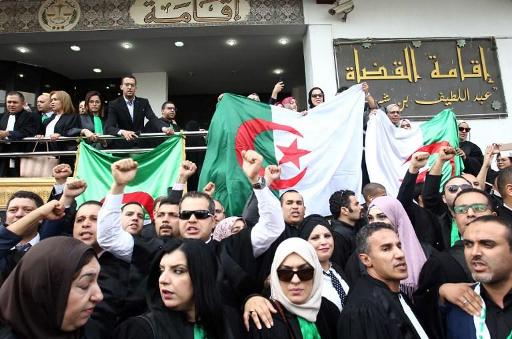
Nov 6, 2019 | News
The ICJ today called on the Algerian authorities to reverse the decision of the Minister of Justice to transfer 2’998 judges, and instead ensure their right to security of tenure and protect the individual and institutional independence of the judiciary in the country.
The ICJ further called on the authorities to refrain from any unlawful or disproportionate use of force against the judges who are currently on strike in a protest against the Minister’s decision.
The call comes after security forces stormed the Oran’s Court of Appeal on 3 November 2019, using force against the judges to end the strike, and amidst the growing, legitimate demands for the establishment of the rule of law and the end the executive’s control over the judiciary.
“The Algerian authorities must end their interference in judicial affairs and ensure that all decisions pertaining to the management of the career of judges, including transfers, are taken by an independent High Judicial Council on the basis of objective criteria and transparent procedures,” said Said Benarbia, Director of ICJ’s Middle East and North Africa Programme.
Under Organic Law n° 04-12 on the High Judicial Council (HJC), the President and Vice-President of the HJC are respectively the Algerian President and the Minister of Justice. For this and other reasons the ICJ considers that the HJC as currently constituted is not independent of the executive, and consequently that the judiciary as a whole is both institutionally and in practice subordinated to the executive in contravention of international standards on judicial independence and impartiality.
“Instead of attacking judges who are seeking to defend the rule of law, the most urgent priority for Algerian authorities should be the reform of the HJC to ensure its full independence,” Benarbia added.
In 2018, the Human Rights Committee expressed, in its Concluding Observations on the fourth periodic report of Algeria, its concerns over the insufficient guarantees for judicial independence and the need to strengthen the independence and the powers of the HJC.
Contact:
Said Benarbia, Director of ICJ’s Middle East and North Africa Program, t: +41 22 979 38 17 ; e: said.benarbia(a)icj.org
Algeria-Judges strike-News-2019-ARA (Arabic version, in PDF)
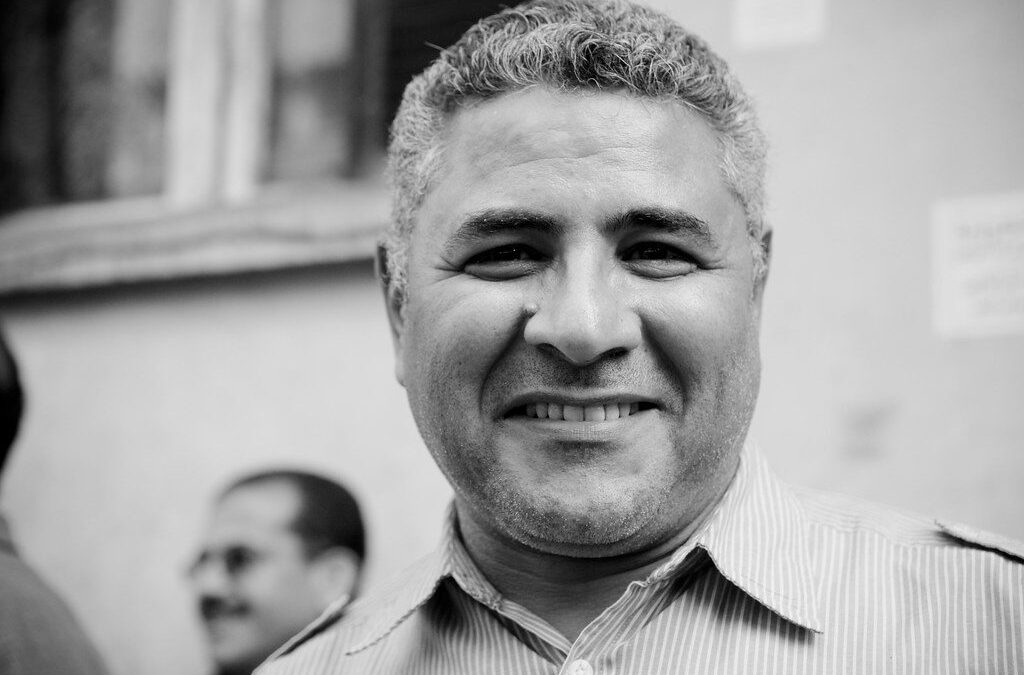
Nov 5, 2019 | News
The ICJ today condemned the physical assault and acts of threats and intimidation taken against its Commissioner Gamal Eid, a prominent Egyptian lawyer and human rights defender.
The ICJ called on the Egyptian authorities to investigate the attacks and bring those responsible to justice. They should also take effective measures to ensure that Gamal Eid and other lawyers and human rights lawyers are protected.
Amidst the ongoing crackdown on human rights defenders and the arrest of more 4,000 individuals since recent anti-corruption protests began, Gamal Eid has been subjected to a sustained campaign of intimidation and harassment.
Two armed men in civilian clothes physically assaulted him on October 10, stole his cellphone and tried to seize his laptop. The assault resulted in injuries to his arm and leg and several cracks in his ribs.
Prior to this assault, Eid’s car was stolen on 30 September and he has repeatedly received anonymous phone calls and messages ordering him to “stop and behave.”
The ICJ believes these attacks to be related to Eid’s work as a lawyer and to his human rights activities, and are part of a pattern by the Egyptian military and government to silence people suspected of opposing them, including those documenting and reporting on the ongoing crackdown on human rights and fundamental freedoms.
“Instead of resorting to cynical, thuggish tactics to silence Gamal Eid, Egypt’s military and government must act to ensure his safety and physical integrity,” said Said Benarbia, Director of ICJ’s Middle East and North Africa Program.
“ They must also ensure that lawyers and human rights defenders are able to carry out their work free of fear, harassment or intimidation,” he added.
In the context of the recent protests against President El-Sisi, the Egyptian security forces have arbitrarily detained at least 16 lawyers in relation to the exercise of their professional functions, including Mahienour El-Massry and Mohamed El-Baqer.
Amr Imam, a lawyer and colleague of Gamal Eid at Arabic Network for Human Rights Information was also arrested on 16 October 2019.
The threats to, attacks against, and arbitrary detention of Egyptian lawyers and human rights defenders are in contravention with Egypt’s obligations under international law, and run counter to the UN Basic Principles on the Role of Lawyers and the UN Declaration on Human Rights Defenders, which respectively provide that lawyers and human rights defenders must be able to carry out their professional functions and work without hindrance, harassment, intimidation, or improper interference.
Contact:
Said Benarbia, Director of ICJ’s Middle East and North Africa Program, t: +41 22 979 38 17 ; e: said.benarbia(a)icj.org
Egypt-Gamal Eid-News-press releases.2019-ARA (Arabic version, in PDF)
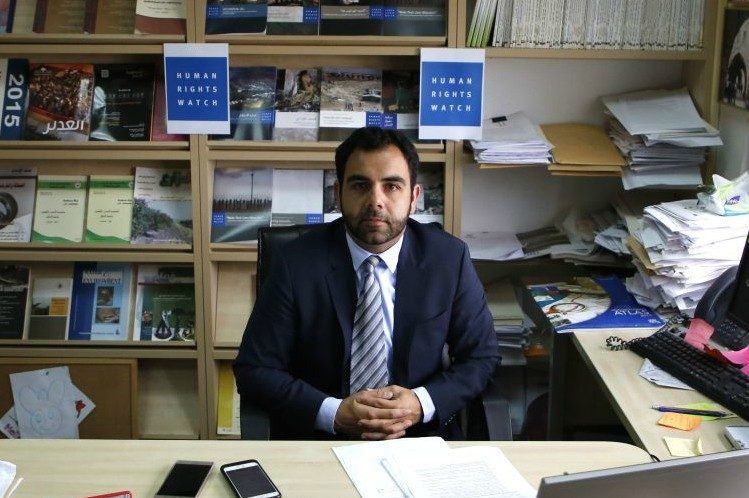
Nov 5, 2019 | News
Today, the ICJ called on the Israeli Government to reverse its decision to deport Omar Shakir, the Human Rights Watch (HRW) Israel and Palestine Director, and ensure that he, HRW, and other human rights defenders are able to carry out their human rights work without intimidation.
The ICJ fears that the decision will have a chilling effect on human rights defenders in the country, who the Israeli authorities are bound to protect and not intimidate or persecute.
The deportation decision is based on a 2017 amendment to the “Entry into Israel Law”, which allows authorities to deny foreigners a permit for entry to and residence in Israel “if he or she, or the organization or the body for which he or she operates, has knowingly published a public call to engage in a boycott against the State of Israel or has made a commitment to participate in such a boycott.”
An appeal against the deportation decision was rejected by the Jerusalem District Court in April 2019, and by Israel’s Supreme Court today.
Israel’s Supreme Court seems to have accepted the Government’s claim that Shakir’s work at HRW, which entailed calling on businesses to cease operating in Israeli settlements in the West Bank, as required by international law, constitutes a call for the boycott of Israel.
The ICJ noted that the move to deport Omar Shakir constitutes an unjustifiable infringement on his right to freedom of expression, guaranteed by article 19 of the International Covenant on Civil and Political Rights. As a State party to the Covenant, Israel has an obligation to respect and protect this right.
The Human Rights Committee already expressed its concern with regard to Israel’s anti-boycott legislation and called on the Israeli authorities to “ensure that individuals fully enjoy their rights to freedom of expression and association and that any restrictions on the exercise of such rights comply with the strict requirements of article 19.”
The deportation would also contravene the UN Declaration on Human Rights Defenders, which affirms the duty of States to promote and facilitate the work of human rights defenders, while scrupulously protecting their fundamental freedoms.
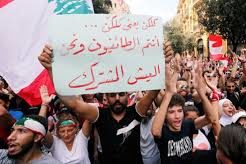
Oct 25, 2019 | News
Today the ICJ condemned the response of Lebanese security forces to predominantly peaceful protests that erupted across Lebanon on 17 October following the government’s attempt to introduce a daily tariff on voice calls made through applications such as WhatsApp.
The ICJ called on the Lebanese authorities to respect and protect the right of protestors to peaceful assembly and freedom of expression; to refrain from using unlawful force to disperse protests and ill-treatment of protestors and; to effectively investigate and ensure accountability for any abuses committed in connection with the protests.
Security forces in Lebanon have employed excessive and unlawful force against protestors, amid nationwide dissent over Lebanon’s worsening economic crisis.
NGOs and video footage circulating on news and social media platforms document a number of disproportionate measures used to disperse crowds and quell the unprecedented protests, including by firing tear gas, beating protestors and forcefully removing them from their peaceful sit-ins.
“The Lebanese authorities must ensure the effective investigation and prosecution of all abuses committed in the context of these protests by State or Non-state actors, including the arbitrary use of force, arrests and ill-treatment,” said Said Benarbia.
With respect to the use of force, the Lebanese authorities are bound by international law and standards, which stipulate that the use of force by law enforcement officials is only permissible when it is a last resort, is strictly necessary and is used to the extent required for the performance of their duty.
Attacks by armed groups affiliated with the Amal Movement and Hezbollah have also been reported by local organizations and media.
At least 15 protesters were injured in Nabatieh and six persons in Riad al-Solh and admitted to hospital. Additional violent attacks on protesters, allegedly attributed to the Amal Movement, also took place in the city of Soor.
Background
The protests purportedly broke out in response to years of rampant corruption, unemployment and poverty.
By 18 October, protests were characterized by calls to oust governmental authorities perceived as Lebanon’s ruling elite, including the president, government and legislative authority, and fundamental change to the sectarian political system.
In an attempt to diffuse the increasingly tense situation and appease protestors, Prime Minister Saad Hariri announced the adoption of a raft of economic reforms on 21 October.
Anti-government protests however, which have now entered their ninth consecutive day, have gained considerable momentum.
Lebanon is a party to the International Covenant on Civil and Political Rights and the Arab Charter on Human Rights. Both of these treaties require the State to guarantee and protect the rights to freedom expression and freedom of assembly and freedom from torture and other cruel, inhuman or degrading treatment or punishment, including through the unlawful use of force.
Lebanon-Protests-News-web story (story in Arabic, PDF)
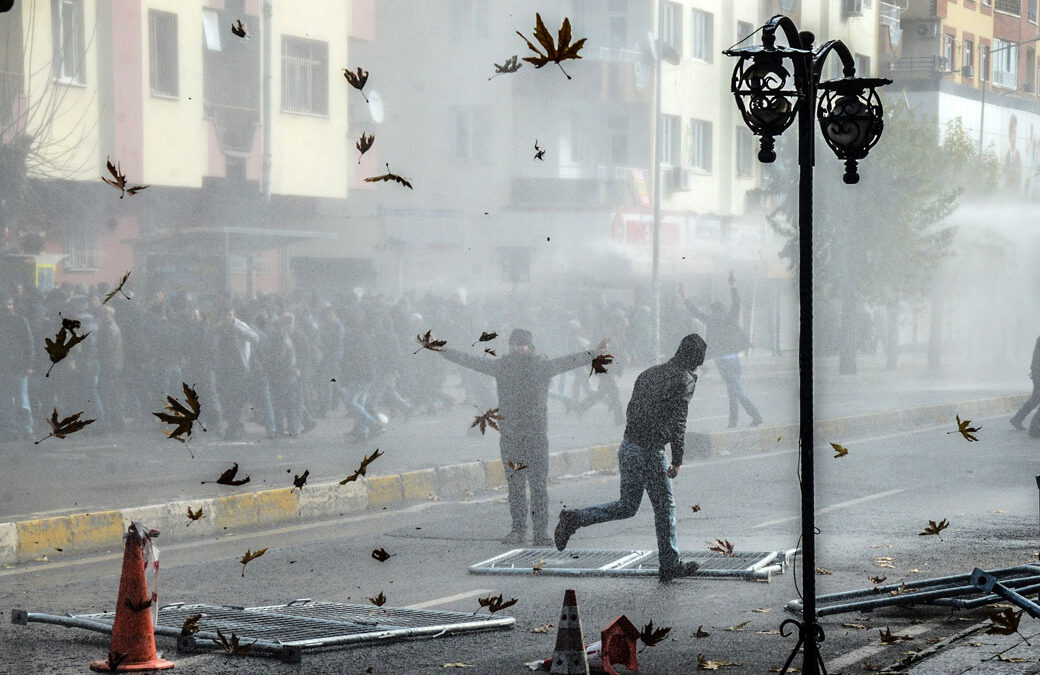
Oct 21, 2019 | News
The ICJ has condemned the arbitrary arrest of at least 186 individuals – 24 of whom are still detained solely for their opinions publicly expressed against the Turkish intervention in northern Syria. The ICJ calls for their immediate and unconditional release and for all charges against them to be dropped.
At least 186 individuals had been arrested by Turkish authorities by 16 October after publicly criticizing Turkey’s military intervention in northern Syria.
They are accused of “provoking the public to hatred and animosity”, “carrying out propaganda for a terrorist organization” and “openly degrading the State of the Republic of Turkey” as prohibited by Articles 216, 220, 301 and 314 of the Turkish Penal Code and Article 7/2 of Prevention of Terrorism Law. Further such arrests are reportedly continuing.
Moreover, an investigation was launched against Istanbul MP Sezgin Tanrıkulu, a member of the main opposition Republican People’s Party (CHP), due to his social media messages and statements. HDP co-chairs and MPs were also investigated over “terrorism links” for their statements on the Peace Spring Operation.
“The Turkish Penal Code and Prevention of Terrorism Law in particular with their overly broad definition of terrorism, place excessively restrictive limitations on the exercise of the right to freedom of expression protected under Article 26 of the Turkish Constitution and give law-enforcement bodies sweeping powers to proceed to arbitrary arrests,” said Massimo Frigo, Senior Legal Adviser of the ICJ Europe and Central Asia Programme.
The ICJ is concerned that these arrests have been undertaken in contravention of the right to freedom of expression under article 19 of the International Covenant on Civil and Political Rights (ICCPR) and article 10 of the European Convention on Human Rights (ECHR), treaties to which Turkey is party.
In particular, these restrictions do not appear to be necessary in a democratic society and proportionate, as required by international law.
Detention ordered in breach of these rights is also inherently arbitrary and therefore not in line with Turkey’s obligations to respect the right to liberty under Article 9 ICCPR and Article 5 ECHR.
“These prosecutions violate the Turkish Constitution and international law and should be immediately dropped”, said Massimo Frigo.
“As a priority identified in its Judicial Reform Strategy, Turkey must also quickly abrogate these criminal provisions that cause undue and arbitrary restrictions on freedom of expression,” he added.
The ICJ recalled that the Venice Commission, in its 2016 report, concluded that the provisions of the Turkish Penal Code under which they are charged “provide for excessive sanctions and have been applied too widely, penalizing conduct protected” under international human rights law.
Similar issues were identified last July by Turkey’s Constitutional Court regarding prosecution for terrorism propaganda, of signatories of a petition calling for peace (the “Academics for Peace” petition) in the southeastern part of the country.
The Constitutional Court ruled that the criminal proceedings violated the right to freedom of expression safeguarded by Article 26 of the Turkish Constitution.
Contact:
Róisín Pillay, Director, ICJ Europe Programme, t +32 476 974263; e roisin.pillay(a)icj.org









